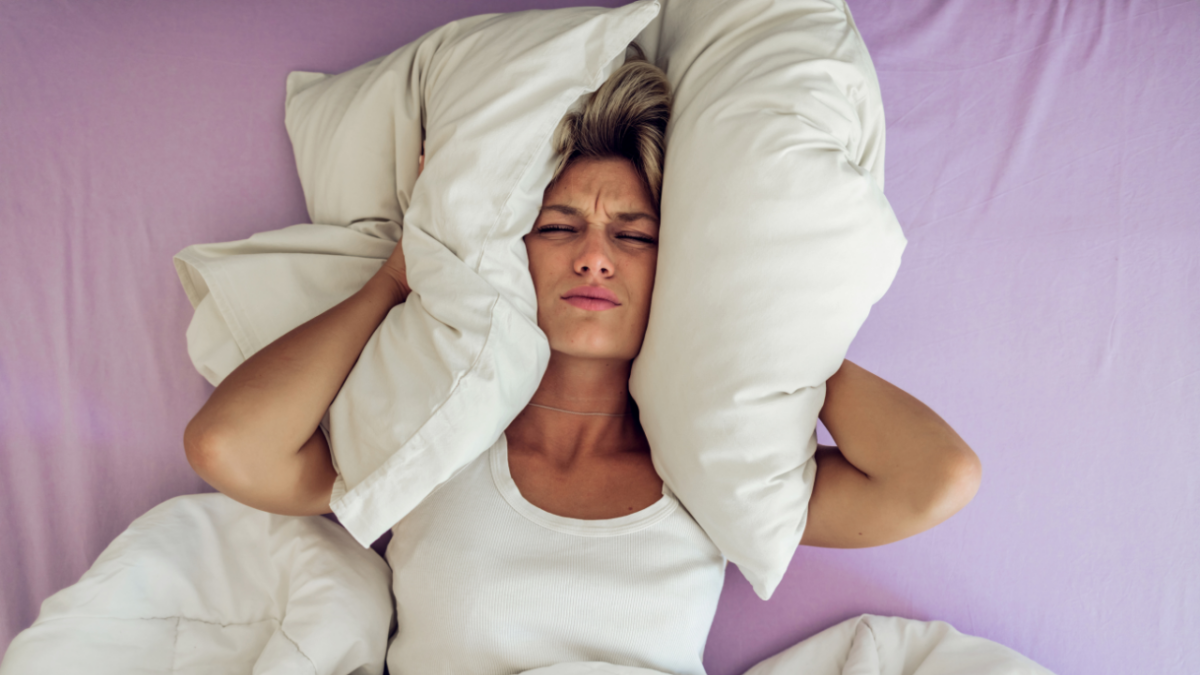Is That Ringing in Your Ears a Sign of Menopause?

If you’ve been hearing a persistent ringing, buzzing, or even whooshing in your ears, it might not just be random noise. Believe it or not, it could be connected to menopause. Yes, while hot flashes and mood swings tend to grab the spotlight, there’s a lesser-known symptom that deserves attention: tinnitus.
What Is Tinnitus?
Tinnitus is that constant ringing or buzzing in your ears with no external source. For some, it’s a mild annoyance; for others, it can be quite disruptive. It’s usually linked to things like hearing loss, exposure to loud noises, or even ear infections. But here’s something you might not have considered: hormonal changes during menopause could also trigger it.
How Is Menopause Connected to Tinnitus?
Menopause brings about a drop in estrogen, and this hormone doesn’t just affect the reproductive system—it also impacts how the brain processes sound. Estrogen plays a role in regulating blood flow and supporting various parts of the auditory system. So, when estrogen levels drop, it can throw your auditory system off balance, potentially increasing the likelihood of tinnitus.
That’s why some women in their 40s and 50s, as they transition through menopause, start noticing this ringing or buzzing.
Other Factors at Play
While hormonal shifts are a significant factor, there are other things to consider that could make tinnitus more likely during menopause:
- Stress and Anxiety: Menopause can be a stressful time, and stress is known to worsen tinnitus. The more anxious or stressed you are, the louder that ringing may seem.
- Blood Pressure Fluctuations: Hormonal changes can affect your blood pressure, and high blood pressure has been linked to tinnitus.
- Age: As menopause generally happens around the time we start aging, age-related hearing loss can also contribute to tinnitus.
- Medications: Certain medications, including hormone replacement therapy (HRT), some antidepressants, and even common pain relievers like ibuprofen, may trigger or worsen tinnitus.
What Can You Do About It?
If you suspect menopause is contributing to your tinnitus, there are several ways to manage the symptoms:
- Stress Management: Try incorporating mindfulness, yoga, or deep breathing into your routine. Reducing stress can help calm both your mind and the ringing in your ears.
- Monitor Blood Pressure: Keep tabs on your blood pressure. If it’s elevated, making changes like exercising regularly, cutting back on salt, or practicing relaxation techniques can help lower it.
- Protect Your Hearing: Avoid loud environments when possible, and use ear protection when necessary to prevent further damage to your hearing.
- Consider Hormone Therapy: Some women find that hormone replacement therapy (HRT) helps ease menopause symptoms, including tinnitus. It’s essential to discuss the pros and cons of HRT with your doctor before deciding.
- Sound Therapy: Sound therapy or hearing aids can help mask the ringing with background noise, offering some relief.
When to See a Doctor
If your tinnitus suddenly becomes severe, or if it’s paired with other symptoms like dizziness or noticeable hearing loss, it’s a good idea to get it checked out. While tinnitus can be annoying, it’s typically manageable and rarely a sign of something serious.
In Summary
Tinnitus might not be the most well-known menopause symptom, but it’s something many women experience. By recognizing the signs and talking with your healthcare provider, you can find ways to manage it and keep it from interfering with your day-to-day life. Whether through lifestyle changes, sound therapy, or medical treatment, relief is possible—even if the ringing is still there.
So, while tinnitus might be ringing in your ears, it’s also a gentle reminder to pay attention to your overall health as you navigate menopause.
